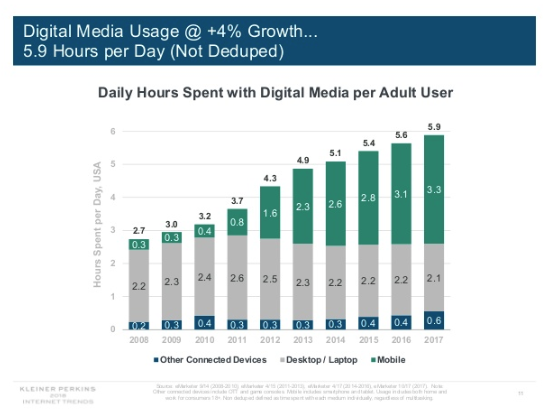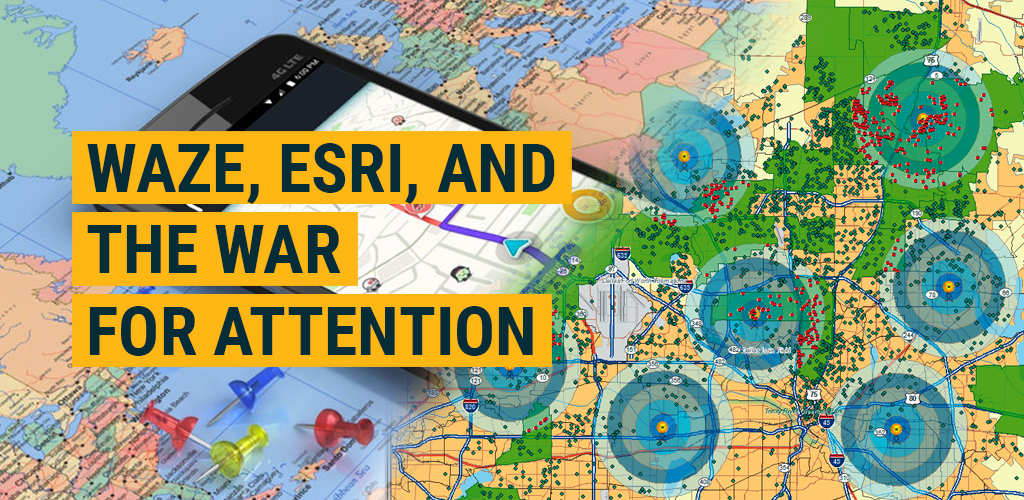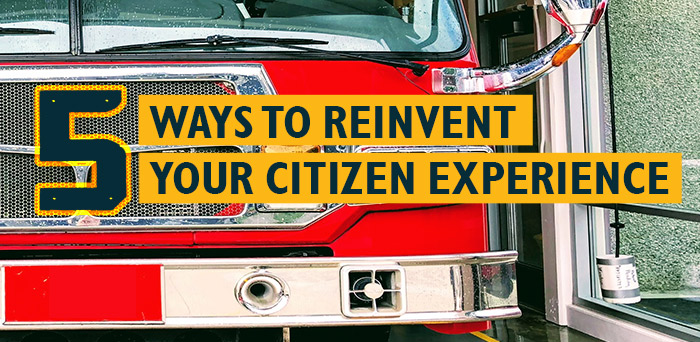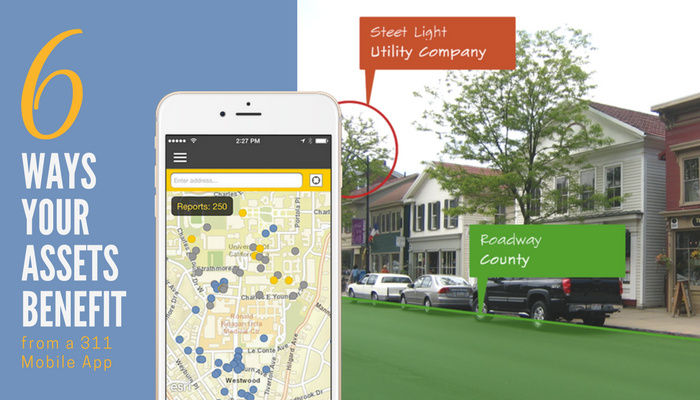A Priori
- deductive
- relating to or derived by reasoning from self-evident propositions — compare a posteriori
- presupposed by experience
- being without examination or analysis: presumptive
- formed or conceived beforehand
By committing to one central app that citizens know they can turn to when they need something, cities can lower costs and deliver better services. If you are not convinced, we give you some great reasons for needing a master app in our mobile strategy post. We feel that as Waze introduces their new program it's a great time to continue talking about how to build a master app strategy for your community.

image: Kleiner Perkins
The Waze Connected Citizens Program
Esri and Waze have partnered, enabling citizens to report on issues inside Waze. Waze is a free, crowdsourced traffic and navigation app and Esri is the global leader in location intelligence. The Connected Citizens Program …“is all about removing any barriers to innovation,” said Adam Fried, Waze Global Partnerships manager…” and we couldn’t agree more. Why shouldn’t a citizen be able to use Waze to report on damaged infrastructure? Ultimately, why shouldn’t self-driving cars police potholes? We are Esri partners because we believe in the potential of maps – “the science of where”, and because the public sector has primarily chosen to use ArcGIS. We are Waze users because crowdsourced content at scale is incredible. Waze was acquired by Google for around a billion dollars in 2013. We are talking about big successful international business with penetration at scale. The Connected Citizens Program offers cities an amazing source of data.
The War for Attention
Today’s citizen spends almost 6 of their waking hours consuming digital media. Attention is a zero-sum game – you are where your attention is. For Facebook, Snapchat, Google, and other attention merchants, your attention is the last scarce resource. To deliver services to citizens, you need their attention. If you’d like to fix a pothole, a broken light, or leaking water main, you need to know about it. With the Waze Connected Citizens Program, cities can leverage a large attentive crowd for just that.
Owning the Platform
And now we get to the heart of the matter. Rock Solid (previously CitySourced) launched as a tool to enable mobile service requests and we continue to maintain best of breed capabilities in this regard. Part of enabling mobile service requests has meant becoming a master app for cities. This is because cities don’t want to have 10 or 15 different standalone mobile apps (an app for parking, bike share, crime tips, and an app for service requests, and on and on). When you hear about a program like the Waze Connected Citizens Program, there’s a temptation to think – “now I don’t need an app for service requests”. Certainly, a city should want the data made available by Waze, but that should run in parallel to their master app strategy.
[bctt tweet="Cities don’t want to have 10 or 15 different standalone mobile apps" username="Rock Solid"]
Reporting a service request from Waze is super powerful, but what if you are reporting a water leak? With the Rock Solid app, the citizen can take a photo of the leak which a city could use to make a quick decision about the nature of the leak – is it waste or stormwater. This example is not meant to pull a 180 and advocate against the Connected Citizens Program, it is meant to help push this dialogue deeper.
What are the best practices?
Our best of breed solution is highly configurable. Out-of-the-box we maintain over 50 backend integrations with practically limitless configuration options around service requests. That means we are able to work with the city to augment the Waze Connected Citizens Platform.
A last note, for cities, owning the citizen engagement platform also means optimizing citizen engagement. Part of that means bringing on other services. Shouldn’t a citizen be able to make any city payment using their mobile app? Shouldn’t a citizen be able to receive alerts, discover and access events, or even apply for a permit? These are all things our customers are doing today. In Lansing, Michigan the app is called Lansing Connect, in Salt Lake City, Utah it is called SLC Mobile, but in both cases, these cities are taking the next step to optimize their citizens’ experiences. If the city owns the platform they can set the pace of development and ensure their chosen software has an integration. The city can ensure their priorities are met.
We recommend leveraging brilliant innovations like the Waze App to improve services, but that needs to be done in parallel with the development of a citizen mobile experience that the city owns.


